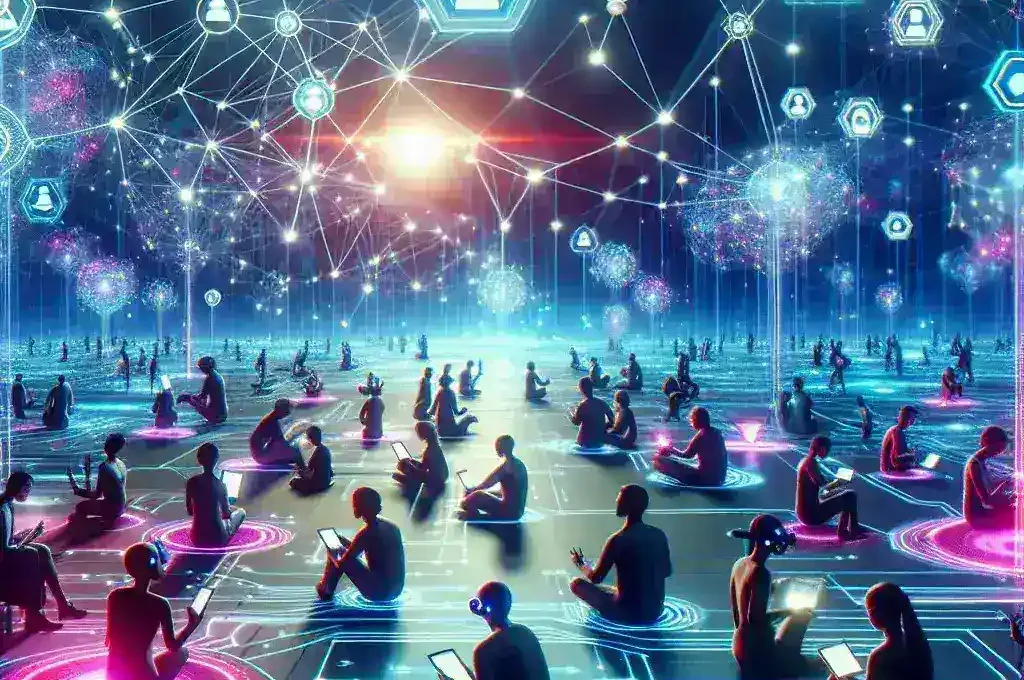Understanding the Metaverse
The term “Metaverse” has been buzzing around tech circles, but what does it really mean? Simply put, the Metaverse is a collective virtual shared space, created by the convergence of virtually enhanced physical reality and physically persistent virtual space. It encompasses digital environments where users can interact, socialize, play, and work in a three-dimensional space, often augmented by virtual reality (VR) and augmented reality (AR).
The concept of the Metaverse is not entirely new. It was first mentioned in Neal Stephenson’s 1992 novel “Snow Crash,” where it referred to a virtual reality-based successor to the internet. Today, companies like Facebook (now Meta), Google, and Microsoft are investing heavily in this space, hinting at its potential to revolutionize the way we live.
Components of the Metaverse
The Metaverse is made up of several key components:
- Virtual Worlds: These are fully immersive 3D environments where users can explore, socialize, and engage in various activities. Examples include games like “Fortnite” and social platforms like “VRChat.”
- Augmented Reality: AR overlays digital information onto the physical world, enhancing our perception and interaction with our surroundings. Think “Pokemon Go” or AR filters on Instagram.
- Blockchain Technology: Blockchain underpins the economic aspects of the Metaverse by providing secure, transparent transactions, and enabling the creation and exchange of digital assets known as NFTs (Non-Fungible Tokens).
- Social Interaction: Communication within the Metaverse often takes place in real-time, allowing for meaningful social interactions through avatars or other digital representations.
- Economy: The Metaverse has its own burgeoning economy, driven by digital goods, services, and experiences that can be bought, sold, and traded using cryptocurrencies.
Impact on Various Sectors
The Metaverse is poised to impact several sectors, reshaping how we function in a myriad of ways:
Entertainment
The entertainment industry stands to benefit immensely from the Metaverse. Virtual concerts, immersive gaming experiences, and interactive movies are just a few avenues being explored. Artists and creators can reach wider audiences and monetize their content in novel ways.
Work and Collaboration
The COVID-19 pandemic has already accelerated remote work trends, but the Metaverse takes this a step further. Imagine virtual offices where employees can collaborate in 3D spaces, attend meetings, and network as avatars. Tools like Microsoft Mesh are already paving the way for such innovations.
Education
Education could become more engaging and interactive. Virtual classrooms can simulate complex scientific experiments, historical events, or even space exploration missions, making learning more hands-on and effective.
Commerce
Retail and e-commerce might experience a transformative shift as well. Virtual stores allow consumers to try on clothes, test products, or even attend product launches in a digital space. This can create more personalized and immersive shopping experiences.
Healthcare
The healthcare sector could leverage the Metaverse for telemedicine, virtual therapy sessions, and even surgical simulations. Medical professionals can use VR to train in realistic environments, improving their skills and preparedness.
Challenges and Considerations
While the Metaverse promises many benefits, it also brings several challenges:
- Privacy and Security: As more personal data gets collected in virtual environments, ensuring privacy and security becomes paramount.
- Digital Divide: Not everyone has access to high-speed internet or advanced devices, potentially widening the gap between different socioeconomic groups.
- Regulation: Navigating the legal landscape of digital assets, virtual real estate, and online behavior will require comprehensive regulation.
- Mental Health: Prolonged exposure to virtual environments might have implications for mental health, necessitating guidelines and moderation.
The Future of the Metaverse
The Metaverse is still in its infancy, but its growth potential is staggering. As technology advances, we can expect more seamless integration between our physical and digital lives. From enhanced social interactions to novel economic opportunities, the Metaverse holds the promise of a frontier that is as exciting as it is uncharted.
Businesses, developers, and individuals should prepare for this shift by staying informed and adaptable. The Metaverse isn’t just a trend; it’s likely the next significant evolution in our digital journey.

